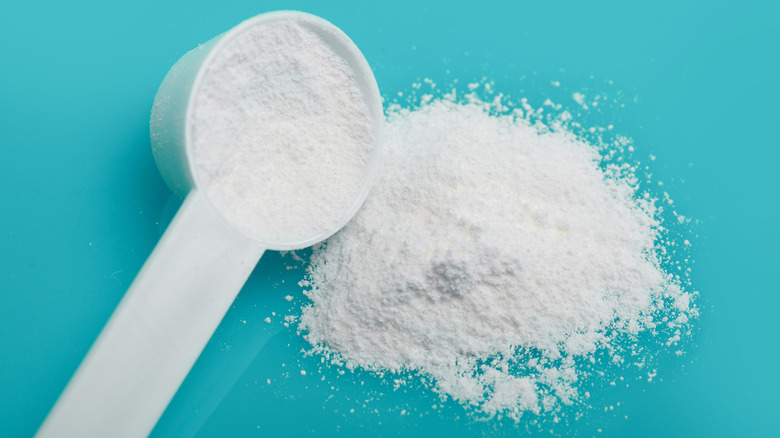What You Should Know About Maltodextrin
If you make a habit of reading nutrition labels, you have probably come across maltodextrin more than once. It is used in a variety of processed foods and beverages as a thickener or to improve shelf life and taste. Maltodextrin is a highly processed powder made from wheat, potato, corn, or rice starch. It is similar to corn syrup solids, except it is less than 20% sugar after it is processed, whereas corn syrup solids are at least 20% sugar (via Healthline). The finished powder is tasteless, and it can dissolve in liquids.
Many foods including cereals, pasta, salad dressings, soups, baked goods, and energy drinks contain maltodextrin in small amounts. And unless you are eating a diet that consists of a lot of processed foods, it won't have a dramatic effect on your carbohydrate intake (via Healthline). The U.S. Food and Drug Administration has deemed maltodextrin generally safe, but there are some things you should know about it.
Side Effects Of Maltodextrin
Maltodextrin is high on the glycemic index, which means it can cause your blood sugar to spike. Those with diabetes should consume it carefully to be on the safe side (via Healthline). Maltodextrin might also affect gut bacteria. Research on mice suggested that it could decrease good gut bacteria and lead to intestinal problems and a higher risk for inflammatory bowel diseases. Studies also suggest that it is linked to an increase in the E. coli bacteria as well as the survival of Salmonella bacteria (via Medical News Today).
If you have any food allergies or are intolerant to certain kinds of foods, you might want to keep an eye on your maltodextrin intake. In some individuals with allergies, it can cause cramping, asthma, and difficulty breathing (via Medical News Today).
Positive effects of maltodextrin include a possible improvement in digestion. Evidence suggests it might help prevent colorectal cancer because of the way it ferments in the intestines. It can also help those with chronic hypoglycemia maintain normal blood sugar levels.

